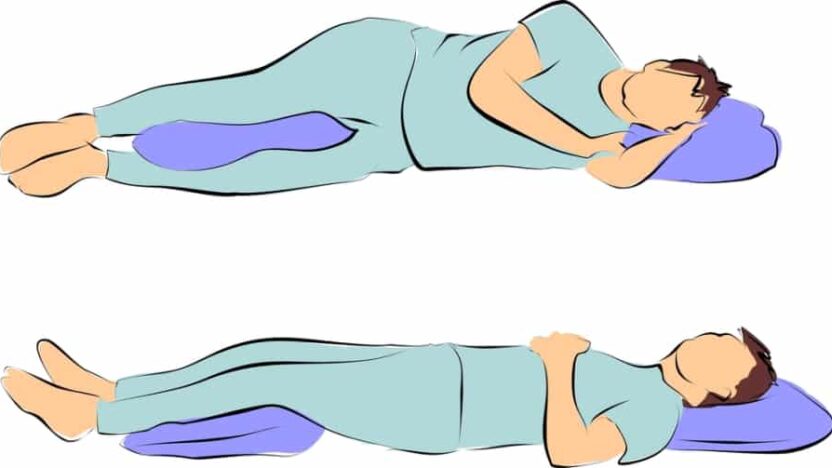Getting quality sleep is essential for overall health and well-being. Unfortunately, many people struggle with sleep issues that impact their daily lives. If you’re searching for the best ways to sleep, you’re not alone. In this article, we’ll explore scientifically backed methods to help you fall asleep faster and stay asleep longer.
1. Maintain a Consistent Sleep Schedule
One of the best ways to sleep better is by sticking to a consistent sleep schedule. Your body has an internal clock, known as the circadian rhythm, which regulates sleep and wakefulness. Going to bed and waking up at the same time every day helps regulate your sleep cycle and improves sleep quality.
Tips for a consistent sleep schedule:
- Set a fixed bedtime and wake-up time, even on weekends.
- Avoid napping for long hours during the day.
- Use an alarm clock to reinforce a consistent routine.
Learn more about circadian rhythms
2. Create a Relaxing Bedtime Routine
A calming pre-sleep routine signals to your body that it’s time to wind down. Engaging in relaxing activities before bed can enhance sleep quality.
Effective bedtime rituals:
- Read a book or listen to soothing music.
- Take a warm bath to relax muscles and lower body temperature.
- Practice meditation or deep-breathing exercises.
- Avoid screens at least an hour before bedtime.
3. Optimize Your Sleep Environment
Your bedroom environment plays a crucial role in determining the quality of your sleep. Small changes can make a big difference in how well you rest at night.
Tips for an ideal sleep environment:
- Keep your room cool (60-67°F or 15-19°C).
- Use blackout curtains to block light.
- Choose a comfortable mattress and pillows.
- Minimize noise with earplugs or a white noise machine.
How to create a sleep-friendly bedroom
4. Watch Your Diet Before Bed
What you eat and drink before bedtime can significantly impact your sleep quality. Some foods and beverages can promote relaxation, while others can interfere with sleep.
Foods that promote sleep:
- Bananas (rich in magnesium and potassium)
- Almonds (contain melatonin and magnesium)
- Herbal teas like chamomile and valerian root
Foods to avoid before bed:
- Caffeine-containing drinks like coffee and energy drinks
- Spicy or heavy meals that can cause acid reflux
- Alcohol, which disrupts sleep cycles
5. Get Regular Exercise
Exercise is a natural way to improve sleep, but timing is key. Physical activity helps reduce stress, enhance mood, and regulate the body’s sleep-wake cycle.
Best exercise practices for better sleep:
- Engage in at least 30 minutes of moderate exercise most days of the week.
- Avoid high-intensity workouts within 2-3 hours before bed.
- Opt for relaxing activities like yoga in the evening.
6. Manage Stress and Anxiety
Stress and anxiety are common culprits behind sleep difficulties. Finding healthy ways to manage stress can lead to better sleep quality.
Stress management techniques:
- Practice mindfulness meditation.
- Keep a gratitude journal to clear your mind.
- Use progressive muscle relaxation techniques.
7. Limit Blue Light Exposure Before Bed
Electronic devices emit blue light, which suppresses melatonin production and disrupts sleep. Reducing screen time in the evening can improve sleep quality.
Ways to minimize blue light exposure:
- Use blue light filter settings on your phone or computer.
- Wear blue light-blocking glasses.
- Avoid watching TV or using devices an hour before bed.
8. Consider Natural Sleep Aids
If you struggle with sleep despite making lifestyle changes, natural sleep aids may help. However, consult a healthcare provider before trying any supplements.
Popular natural sleep aids:
- Melatonin supplements
- Magnesium
- Valerian root
9. Seek Professional Help If Needed
If sleep problems persist despite trying these best ways to sleep, it may be time to seek professional help. Chronic insomnia or sleep disorders like sleep apnea require medical attention.
When to see a doctor:
- Persistent difficulty falling or staying asleep
- Excessive daytime sleepiness
- Loud snoring or breathing interruptions during sleep
Final Thoughts
Getting quality sleep is essential for your overall health and productivity. By maintaining a sleep schedule, creating a relaxing bedtime routine, optimizing your sleep environment, and making healthy lifestyle choices, you can significantly improve your sleep quality. Try these best ways to sleep and see what works best for you.
For more tips on health, nutrition, and well-being, visit EatExact!
learn more: sleepfoundation.org




